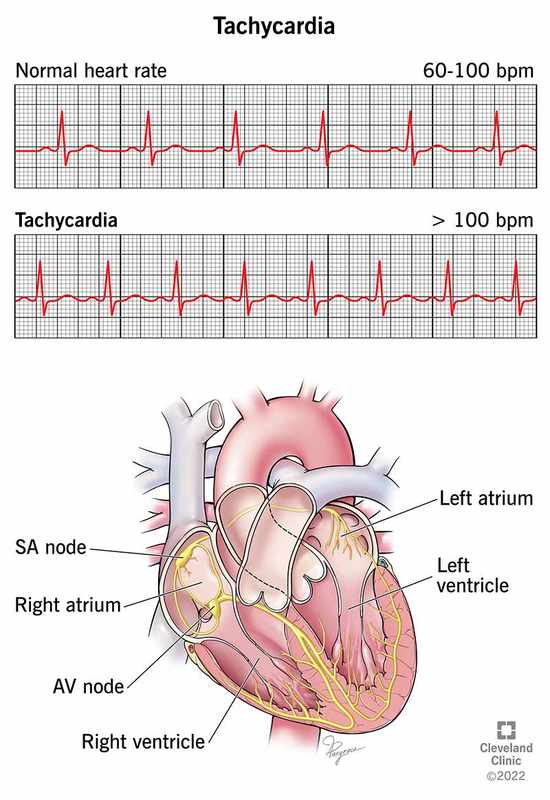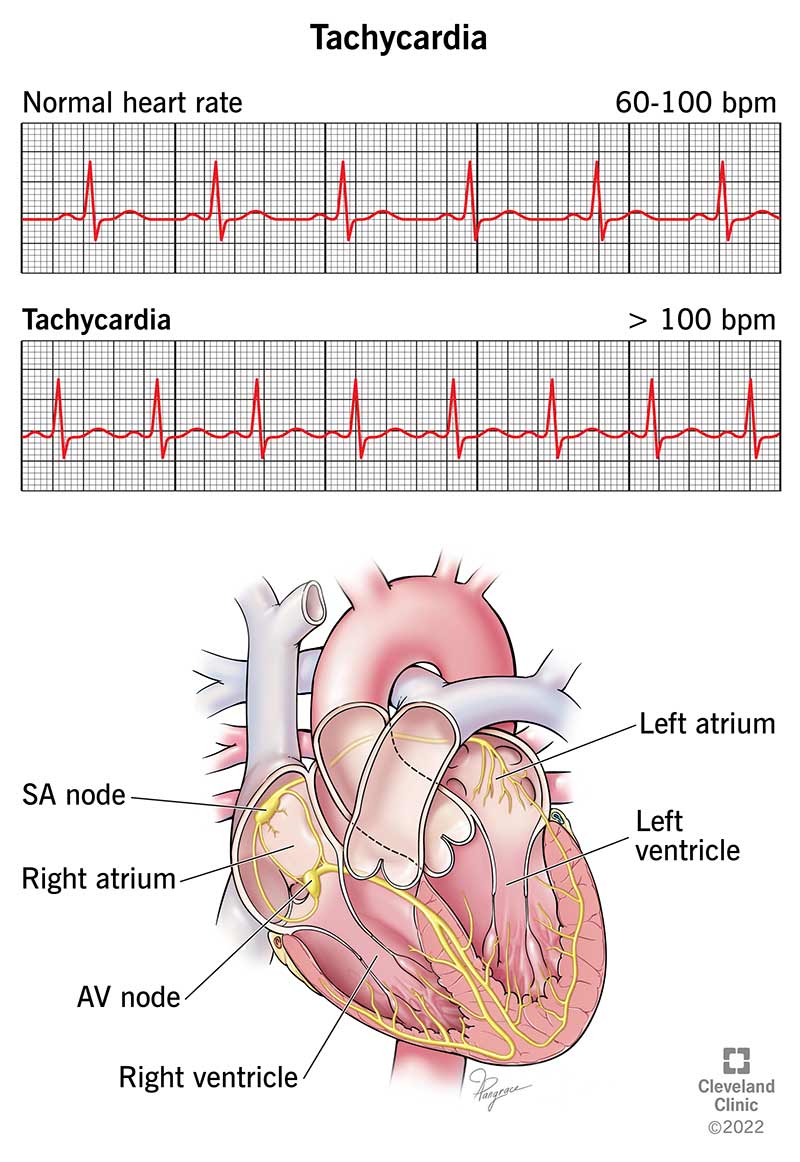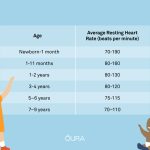Your heart is beating right now, and it’s beating faster than you think.
The Normal Adult Heart Rate: What You Need to Know
In a world where stress levels are through the roof and sedentary lifestyles seem to be the norm, knowing your heart rate can be a lifesaver. But did you know that there’s a specific range in which your normal adult heart rate should not exceed?
What is Normal Adult Heart Rate?
The American Heart Association defines normal adult heart rate as 60-100 beats per minute (bpm) at rest. Sounds simple enough, but what does “at rest” mean exactly? It means your heart rate when you’re sitting or lying down and not engaging in any physical activity. So, if you’re just lounging on the couch watching TV or taking a break from work, this is what we’re talking about.
But why is it important to know your normal adult heart rate? Well, that’s exactly what we’ll be exploring in this blog post. In the next section, we’ll dive into the consequences of an abnormal heart rate and how it can impact your overall health.

In our previous section, we explored what constitutes a normal adult heart rate and why it’s crucial to know your resting heart rate. Now, let’s delve deeper into the consequences of an abnormal heart rate and how it can impact your overall health.
The Consequences of Abnormal Heart Rate
When your heart rate exceeds the normal range, it can lead to a host of issues. For instance, a resting heart rate above 100 bpm can be indicative of chronic stress, anxiety, or depression. This increased heart rate can put additional strain on your cardiovascular system, increasing your risk of developing conditions like high blood pressure, coronary artery disease, and even heart failure.
On the other hand, a low resting heart rate – typically below 60 bpm – can be a sign of a healthy cardiovascular system. However, in some cases, it can also be an indication of certain medical conditions, such as hypothyroidism or autonomic nervous system disorders. In these instances, a normal adult heart rate may not provide a complete picture of overall health.
The Importance of Heart Rate Variability
When we talk about heart rate variability (HRV), we’re referring to the variation in time between heartbeat intervals. A healthy HRV indicates that your autonomic nervous system is functioning properly, allowing for smooth transitions between different physiological states. This is particularly important during physical activity or periods of stress, as it enables your heart to adapt and respond accordingly.
Research has shown that individuals with lower HRV are more susceptible to cardiovascular disease and have a higher risk of mortality. This highlights the importance of monitoring not only your resting heart rate but also your HRV to gain a comprehensive understanding of your cardiovascular health.
Monitoring Your Heart Rate: What You Can Do
Now that we’ve explored the significance of normal adult heart rate and its variability, what can you do to monitor your heart rate effectively? Here are a few simple steps:
- Purchase a pulse meter or heart rate monitor. These devices provide accurate readings and can be worn during daily activities.
- Take your resting heart rate at the same time every day, ideally in the morning before getting out of bed.
- Keep a log to track your heart rates over time, allowing you to identify patterns and trends.
By understanding your normal adult heart rate and monitoring its variability, you can take proactive steps to maintain a healthy cardiovascular system. In our next section, we’ll discuss the role of lifestyle factors in influencing your heart rate and provide tips on how to optimize your overall health.
Learn more about heart disease from the CDC Explore AHA’s guidelines on heart rate monitoring and variability assessmentStay tuned for part two of this series, where we’ll delve into the role of lifestyle factors in influencing your heart rate and provide actionable tips to optimize your overall health.
Get Personalized Health Insights
Discuss your concerns with a medical expert and get personalized advice.
Consult a Medical ExpertYour heart is beating right now, and it’s beating faster than you think.
The Normal Adult Heart Rate: What You Need to Know
In a world where stress levels are through the roof and sedentary lifestyles seem to be the norm, knowing your heart rate can be a lifesaver. But did you know that there’s a specific range in which your normal adult heart rate should not exceed?
What is Normal Adult Heart Rate?
The American Heart Association defines normal adult heart rate as 60-100 beats per minute (bpm) at rest. Sounds simple enough, but what does “at rest” mean exactly? It means your heart rate when you’re sitting or lying down and not engaging in any physical activity. So, if you’re just lounging on the couch watching TV or taking a break from work, this is what we’re talking about.
But why is it important to know your normal adult heart rate? Well, that’s exactly what we’ll be exploring in this blog post. In the next section, we’ll dive into the consequences of an abnormal heart rate and how it can impact your overall health.
Key Points to Remember
To recap, here are the key points covered so far:
- Your normal adult heart rate should not exceed 60-100 beats per minute at rest.
- “At rest” means sitting or lying down and not engaging in physical activity.
Final Insights
In today’s fast-paced world, it’s easy to get caught up in the hustle and bustle. But taking a few moments to check your heart rate can be incredibly beneficial for your overall health. Remember, knowing your normal adult heart rate is just the first step – being aware of any changes or abnormalities is crucial for maintaining good cardiovascular health.
A Strong Conclusion
In conclusion, understanding your normal adult heart rate is a vital part of taking control of your health. By knowing this number, you’ll be better equipped to recognize any changes or irregularities that may arise. So, take a deep breath, sit back, and let your heart do its thing – literally! Remember, a healthy heart is a happy heart, and with the knowledge gained in this blog post, you’re one step closer to achieving just that.
Which of the following is not a function of the liver: Ever wondered what your liver does besides filtering toxins? Dive into the fascinating world of organ functions and explore how this vital organ keeps you alive. Check it out!
Anxiety causes heart palpitations: understanding the link: Did you know that anxiety can cause your heart to beat faster? Uncover the surprising connection between mental stress and physical symptoms, and learn how to manage them effectively. Read more!



